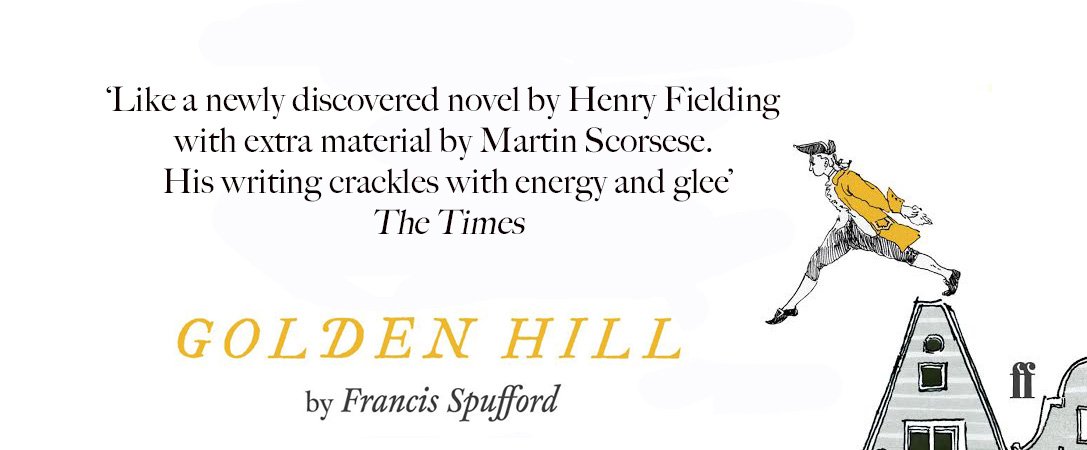Golden Hill presents me with an unusual problem. This book came out last year and has recently been hitting the two-for-one table in bookshops, having just won the Costa award for first novel. Most of the books I review on here have been published for a few centuries so I don’t usually feel a warning on spoilers is needed - in this case it is.
I was so excited about this book; it’s not often a writer I know and like creates an eighteenth century style novel set in pre-revolutionary New York. Described on the title page as ‘the best eighteenth century novel since the eighteenth century,' the style was the element of the book I was most looking forward to.
Unfortunately, this was one of the weakest parts. It’s simply not written in any eighteenth century style I recognise. True, the book is front-loaded with criminal slang drawn from any canting dictionary and there are three moments where the narrator intrudes to make excuses for not being able to describe something properly - but there wasn’t the full on heavy irony of Fielding, the whizz of Smollett, the extravagance of Sterne, the plainness of Defoe - nor any real feeling that this was anything other than a modern-sounding novel with a few old phrases lobbed in. It’s rather like a Tesco curry sauce, this book has a notion of eighteenth century flavour but none of the piquancy.
That said, there are some completely brilliant set-pieces and turns of phrase within the book. There’s a discussion about whether being hanged in the morning really does concentrate the mind - for our protagonist Smith, it doesn’t. I also thought a fever, with its strange, intense, tiring dreams was described better in this book then in any novel I have read. There were a number of very striking similes, I liked one about someone’s expression being like a mask where the eye holes were not lined up right. I’m not saying the book is badly written at all, once I accepted that it wasn’t going to be a Fielding-(Henry and Sarah)-esque romp, I enjoyed the writing immensely.
As good as the writing was, the noveling was incredibly poor. Smith turns up in New York with a cheque for a thousand pounds which may, or may not, be an elaborate scam. What's odder is that he never confirms nor denies whether he is pulling a fast one or not. Odder still, the narration follows Smith, delving into his head, where his internal monologue seems to say, 'oh, how mysterious I am, I hope I am not uncovered, I must complete my mission'. It is the most irritatingly un-knowledable omniscient narrator and there were many times I felt the book had flat out cheated me rather then pleasingly tricked me.
As good as the writing was, the noveling was incredibly poor. Smith turns up in New York with a cheque for a thousand pounds which may, or may not, be an elaborate scam. What's odder is that he never confirms nor denies whether he is pulling a fast one or not. Odder still, the narration follows Smith, delving into his head, where his internal monologue seems to say, 'oh, how mysterious I am, I hope I am not uncovered, I must complete my mission'. It is the most irritatingly un-knowledable omniscient narrator and there were many times I felt the book had flat out cheated me rather then pleasingly tricked me.
There was a fairly engaging combative love story that goes nowhere, the story of the scheme ends in anti-climax. The political story about the argument between governor and assembly has a number of events but no real conclusion (except perhaps its nod to the coming revolutionary war).
We also didn’t see if Smith’s scheme really worked, because the narrator could only narrate about him in New York. This is discovered in the epilogue, where it turns out Smith's non/love interest has written the novel - which completely takes away any last vestige of the Fielding-esque romp, as the interruptions were not from a narrator who is ironically detached but from one of the participants. Also, if she was narrating it; how did she know what Smith felt all the times she wasn’t there? How did she find out the secrets other characters told him, or the threats they made to him if he hadn’t told her about it? Why does she paint herself as so unknowable in her own narrative? …essentially, the last chapter undid any narrative good that had happened in most of the rest of the book and even parts I had enjoyed at the time began to sour in retrospect.
I was really quite disappointed with this book, perhaps I was hoping for too much from it or perhaps I'm just too proud of my own eighteenth century novel to appreciate someone else's.




No comments:
Post a Comment